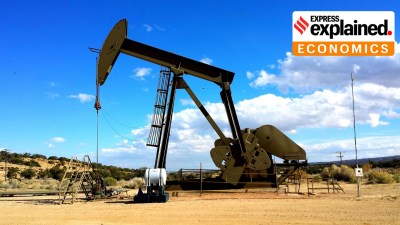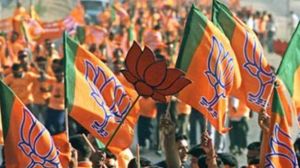Iran146;s discontent with its President grows
Iranian president Mahmoud Ahmadinejad appears to be under pressure from the country8217;s highest authorities to end his involvement in its nuclear programme

Iranian president Mahmoud Ahmadinejad appears to be under pressure from the country8217;s highest authorities to end his involvement in its nuclear programme, a sign that his political capital is declining as his country comes under increasing international pressure.
Just one month after the UN Security Council imposed sanctions on Iran to curb its nuclear programme, two hard-line newspapers, including the one owned by Supreme Leader Ayatollah Ali Khamenei, called on the president to stay out of all nuclear matters.
Such a public rebuke was seen as a sign that the supreme leader8212;who has final say on all matters of state8212;might no longer support the president as the public face of defiance to the West.
It is the first sign that Ahmadinejad has lost Ayatollah Khamenei8217;s confidence, a potentially damaging development for a president who has rallied his nation and defined his administration by declaring nuclear power as Iran8217;s 8220;inalienable right.8221;
The presidency is a relatively weak position with no official authority over foreign policy, the domain of the supreme leader. However, Ahmadinejad has used his post as a bully pulpit to insert himself into the nuclear debate, and as long as he appeared to enjoy Ayatollah Khamenei8217;s support, he could continue.
While Iran remains publicly defiant, insisting that it will move ahead with its nuclear ambitions, it is under increasing strain with mounting political and economic pressures.
The Security Council passed a resolution on December 23, with sanctions intended to curb Iran8217;s uranium enrichment programme, which Iran says is for peaceful purposes but the United States and some European nations contend is for the purpose of creating nuclear weapons. The measure bars the trade of goods or technology related to Iran8217;s nuclear programme. Enriched uranium can be used for making nuclear fuel but also for making nuclear weapons.
Meanwhile, the president has dismissed the Security Council8217;s resolution as 8220;a piece of torn paper.8221;
The daily Jomhouri-Eslami, which reflects the views of Ayatollah Khamenei, said, 8220;The resolution is certainly harmful for the country,8221; adding that it was 8220;too much to call it 8216;a piece of torn paper.8217; 8220;
The newspaper added that the nuclear programme required its own diplomacy.
Another newspaper Shargh8212;run by an aide to the country8217;s chief nuclear negotiator Ali Larijani8212;also pressed Ahmadinejad to end his involvement in the nuclear programme.
8220;They want to minimise the consequences of sanctions now that they have been imposed,8221; said Mohammad Atrianfar, an executive of the Shargh. 8220;But they don8217;t have clear strategy, and they are taking one step at a time.8221;
8220;The resolution has decreased Iran8217;s political credibility in the international community, and so other countries cannot defend Iran,8221; said Ahmad Shirzad, a reformist politician and a former legislator.
Although the Security Council sanctions were limited to Iran8217;s nuclear programme, they have started to cause economic disruptions.
Around 50 legislators signed a letter this week calling on the President to appear before the Parliament to answer questions about the nuclear programme.
The Iranian stock market continued to decline. The daily Kargozaran reported last week that the number of traders had decreased by 46 per cent since the Security Council resolution was passed. In the past year, major European banks have severed business ties with Iran.
- 01
- 02
- 03
- 04
- 05































